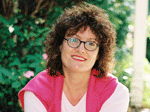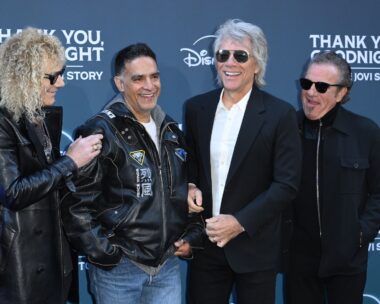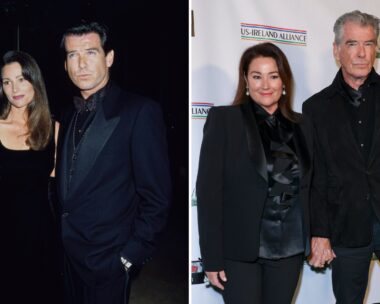For more than 20 years, publishing legend, Maggie Hamilton, was privy to the secrets of the rich and famous. As Publicity Director at Random House Australia, she met and toured with dozens of eminent authors, including Frederick Forsythe, Nicholas Evans, Joanna Trollope and singer Michael Crawford who was in Australia earlier this year to promote his autobiography.
“Michael was my last author and he was very special,” says Maggie.
As well as seeing authors at their brilliant best, Maggie also met them when they were jet-lagged, tired, emotional – and plain cranky or badly behaved. “I saw them with their ‘mask’ down,” says Maggie with a broad smile. “But those secrets die with me.”
In recent months, Maggie has done something many people in publishing dream of – she has stepped over the line to become an author and has written her first book, Coming Home (Penguin $29.95). This has meant experiencing the process, from writing the book to going on a publicity tour and being in the hands of another publicist, from a vastly different perspective. “Being on the other side, what you see is the magic.,” says Maggie. ”You spend all this time – the book’s taken two and a half years to write – and then suddenly, it’s out there. There’s that moment of extreme anxiety when you wonder if the vision you hold for the book is going to translate out in the world.” The experience has reminded Maggie of the “the immense amount of love” that goes into the promotion of books. “Being on the other side, it has struck me that publishing is still quite old fashioned in its values in that people within a book company will take your book and give it all the love and attention that you give it yourself. And that’s what we need in the world today. Whether it’s making meals or friendship, there’s a lack of attention being paid to essential things because everybody is so busy. But it’s still there in publishing.”
Coming Home, a non-fiction book about stepping back from the stress and busyness of the twenty-first century to take time out for yourself and rediscover inner peace, has invoked some startling responses among those who have read it. Three of Maggie’s colleagues in publishing resigned to go and do something else. As did a newspaper journalist, who left her job to go to South America for four months. “It’s kind of spooky. I’ve been thinking ‘oh my God, what have I done! I’m going to get drummed out of town.’ My book seems to provoke a lot of emotion in people. I guess because it’s based on my own journey, of corporate life and the horrendous busyness and stress and having to find my way through that.”
Maggie’s journey began when she felt an emptiness inside her, despite the long hours and exciting, event filled days at work. “I had this massive hole inside me, nothing seemed to touch me. We all have beautiful things happen in our life, wonderful friends, great jobs, but it was almost like the more of those things I had, the emptier I felt. ”Looking back, I now think that was the beginning of what could have been severe depression, but because I couldn’t bear to feel like that, I realised I had to do something about it.”
Coming Home tracks Maggie’s search for more depth and meaning in her life and takes the reader from the great deserts of the American south-west, to south-east Asia and to the ancient sites of Britain. It discusses things such as how to transform relationships at home and work. How to deal with those we find difficult or hard to love. Maggie believes that like Sleeping Beauty, parts of people – “those parts that makes us so vital” – end up being shut down in response to the stress of modern life and all its demands. “Whole parts of us end up being asleep and that’s when we end up on a treadmill. Life is on automatic and there seems to be no way beyond it. I got to the stage where I needed all the willpower I had to get out of bed in the morning.”
Women, Maggie believes, have lost touch with their creativity. “In ancient times, women would sit around and do needle work and spin and that is a form of being together in a shared space and it feeds you. It’s got a quietness to it. You can go inside yourself. Lose yourself in the moment. It’s like when your grandmother knitted a jumper for you and you’d be cocooned in love. It’s that kind of attention to detail, to the simple things, that I think we’ve got to get back to.”
Maggie thinks people have made life “terribly complex” and have allowed work to take over. “It just grows and grows until it is almost unbearable, but the terrible fear of being next out the door means that we accept it. The abuse is running right through the workforce, from the junior to the most senior executive. Nobody is winning out of this.”
Bringing back “the love into the little things, the profound things, and in so doing rediscover the magic of everyday life, that is almost our scared quest and responsibility,” says Maggie. “Like sharing a simple bowl of pasta with friends. When you think of our generation growing up, they would come and have tea and have exactly what the family was eating. And it was the sharing together that mattered. Somehow we’ve become very self-conscious. “It doesn’t matter if it’s cheese on toast. That can be a profound moment you can share with somebody, because it’s made with love.”
Maggie is based in Sydney, where she lives with her husband, Derek and an imperious grey cat called Puss. She is working on a second book and she “often,” serves cheese on toast to her friends.




